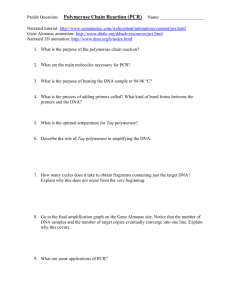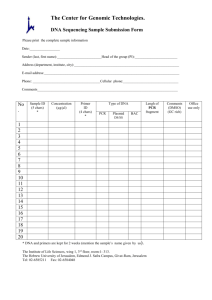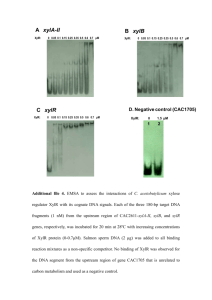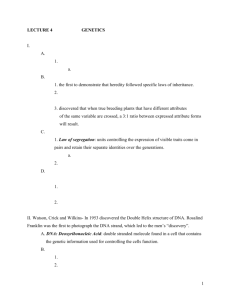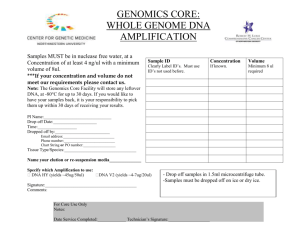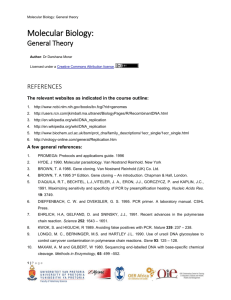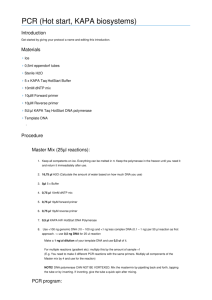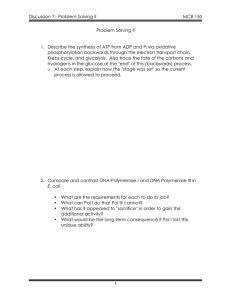Polymerase Chain Reaction
advertisement
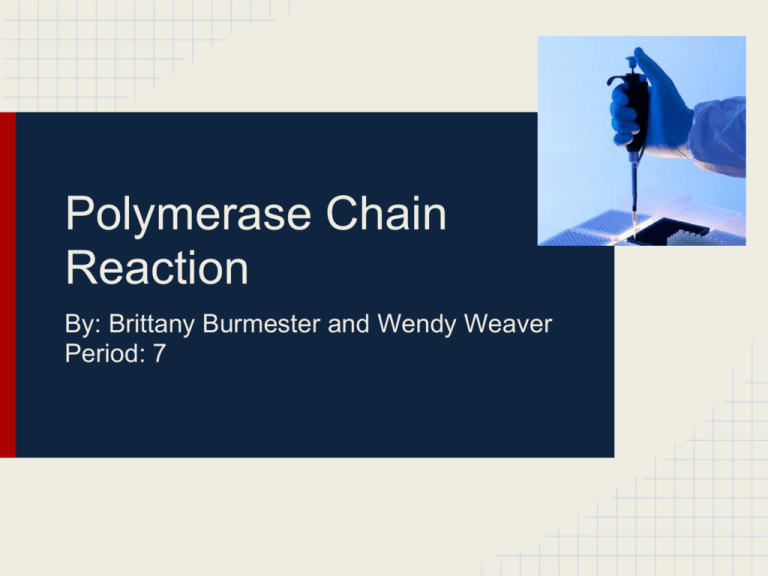
Polymerase Chain Reaction By: Brittany Burmester and Wendy Weaver Period: 7 How Does It Work? Polymerase chain reaction is a technology that allows us to take a little amount of DNA from blood or hair and increase the amount of DNA by a million times so that it can be analysed quickly and easily. Why Is it Important? ● ● ● ● ● ● ● ● ● Detection of Bacterial Infections Rapid changes in transcription at a single cell level DNA Sequencing Screening for Genetic Disorders Site specific mutation of DNA Cloning or subcloning of cDNAs Allow use to find DNA from fossil remains from extinct organisms Very helpful in solving crime that have bodily fluid involved (ei. murder) Possible to create vaccines faster What Impact Does it Have? Major impact on medicine! It has helped in: ● Infection detection- It can provide a quick and accurate detection of infections, such as AIDS. ● Genetic screening- Allows doctors to identify a person who carries genes for a disease, such as cystic fibrosis. ● Cancer warning- Allows doctors to find genetic diseases early in the development of the disease. ● Diagnosis of bowel cancer- It can be detected quicker and easier by looking at the DNA cells in faeces. ● Tissue matching- Will lead to more successful transplants because doctors can look at the donor's and patients DNA to determine if the patient's body will accept the new organ. Potential Problems? It is very difficult to work with. ● very sensitive to environment ● could produce nonsense DNA chains if incorrectly copied ● contamination, even minuscule, will produce wrong copy Ethical Considerations While this process has been questioned, many ethical communities have approved the usage of polymerase chain reaction, especially when it can be used to potentially save a person's life. Scientists Those who have worked with Polymerase Chain Reaction include: - Kary B. Mullis (Nobel Prize in Chem. in 1993) - Michael Smith (Mullis' partner) Sources ● ● ● http://faculty.plattsburgh.edu/donald.slish/pcr.html http://www.abpischools.org.uk/page/modules/pcr/pcr7.cfm? coSiteNavigation_allTopic=1 http://www.genome.gov/10000207
